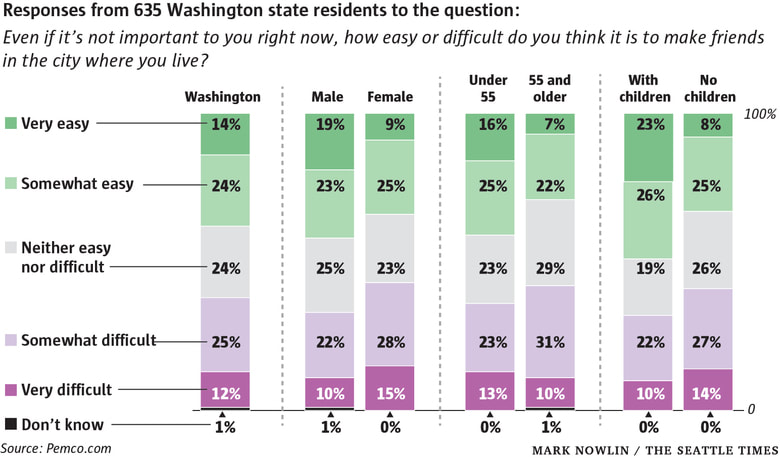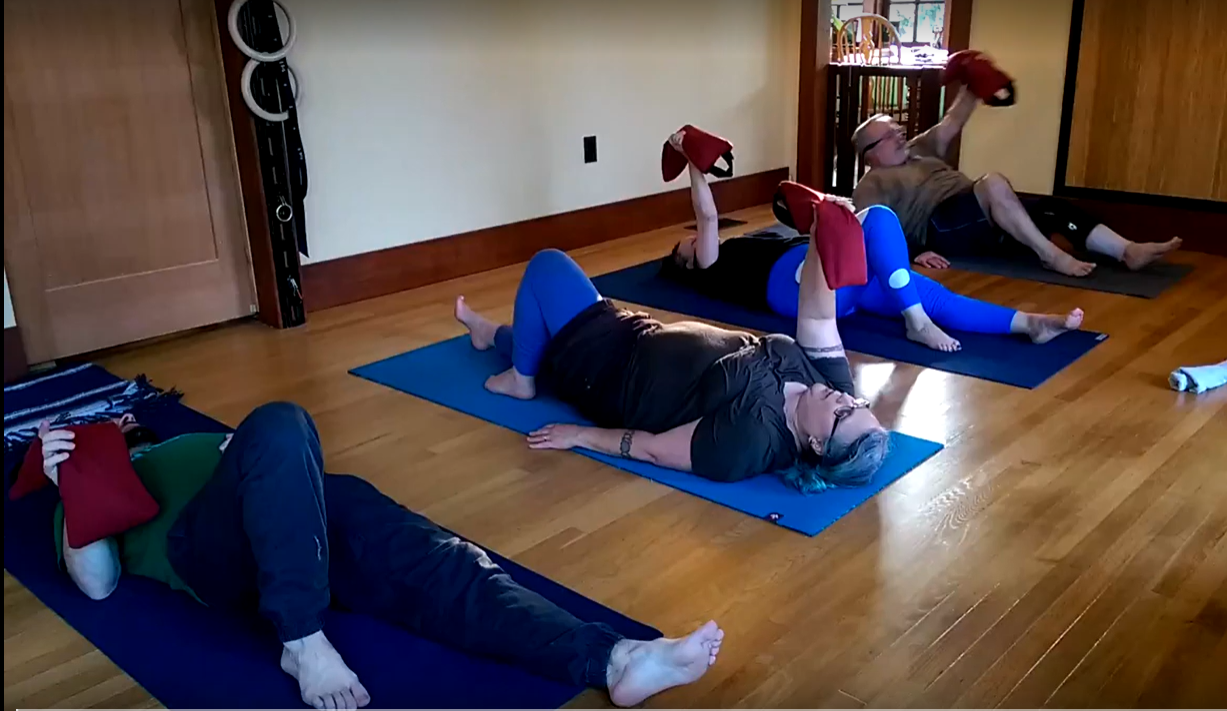I’ve been reflecting quite a lot this past month on the compounded meanings of community, gifts, capacity and The Seattle Freeze.I guess I will always wonder what creates a community. For the past month I have thought a lot about the significance and definition of gift. In studying community and gifts, the factor of capacity came up over and over again. This all led me around to theorize the infamous Seattle Freeze is our focus on transactional life.
In 2016 I went to Boulder, Colorado for a teacher training. The first day in training, the first lunch break, the teacher and his posse insisted I join them for lunch. After that was dinner, and the following two days I was always invited to join this or that gathering- always included. Talking with my husband long distance, I recounted to him my amazement, “They invited me to eat with them- in 15 years at Seattle Yoga Arts, no one has even wanted to have tea with me!” John responded, “Now you know what the Seattle Freeze is.” I work to retrain myself and our culture. I want to pass on what I understand has transformed me. Like (recently passed) Ram Dass’ Fierce Grace and Anna Forrest’s Fierce Medicine, I wonder if my teaching isn’t very fierce! That intensity of youth has not diminished. I teach that we must feel, breath and think, that we must know we are feeling (sensations and emotions), know we are breathing, know we are thinking. I teach that it is safe to feel, breath and think. I teach that our feelings (sensations and emotions), breath and thoughts are our corporeal reality. The Economy of Gifts: “You give what is appropriate to the occasion and to your means, when and where your heart feels inspired. For the monastics, this means that you teach, out of compassion, what should be taught, regardless of whether it will sell. For the laity, this means that you give what you have to spare and feel inclined to share. There is no price for the teachings, nor even a ‘suggested donation.’ Anyone who regards the act of teaching or the act of giving requisites as a repayment for a particular favor is ridiculed (laughable, comical, amusing, absurd, ridiculous) as mercenary (motivated to take part by the desire for private gain). Instead, you give because giving is good for the heart and because the survival of the Dhamma as living principle depends on daily acts of generosity.” "The Economy of Gifts", by Thanissaro Bhikkhu. Access to Insight (BCBS Edition), 5 June 2010, http://www.accesstoinsight.org/lib/authors/thanissaro/economy.html Your privilege extends only to the act, never at any time to the outcome. Do not be motivated by outcomes, nor should you commit yourself to inaction. Stand in yoga, perform the acts. Give away the avidity.” – Bhagavad Gita, 2.47, translation by Douglas Brooks I feel so fierce about you experiencing this for yourself, I am not always sure where my ability to teach begins and ends. However, I do know where the function breaks down: when it is motivated by gain. When my teaching becomes fixated on the tangible - are you coming back, are you donating financially contributing, are you making progress, did you just suddenly stop coming, this “Economy of Gifts”, this “Stand in Yoga” has failed. "What's in it for me?" is what I understand the Seattle Freeze to be. With that interest, the “mutual compassion and concern as the medium of exchange” is lost. When I left studio teaching and began Aspiration Community Yoga, I was guided by Parker Palmer’s life of “Creating Intentional Community”. As I look back and reflect upon the past 3 years, what I see is that I have done what I am capable of and must release my sense of “it must be me” for the current outcome of success or failure. You let me know whether we have community within Aspiration Community Yoga.
Comments are closed.
|
Archives
December 2022
|
Proudly powered by Weebly




 RSS Feed
RSS Feed